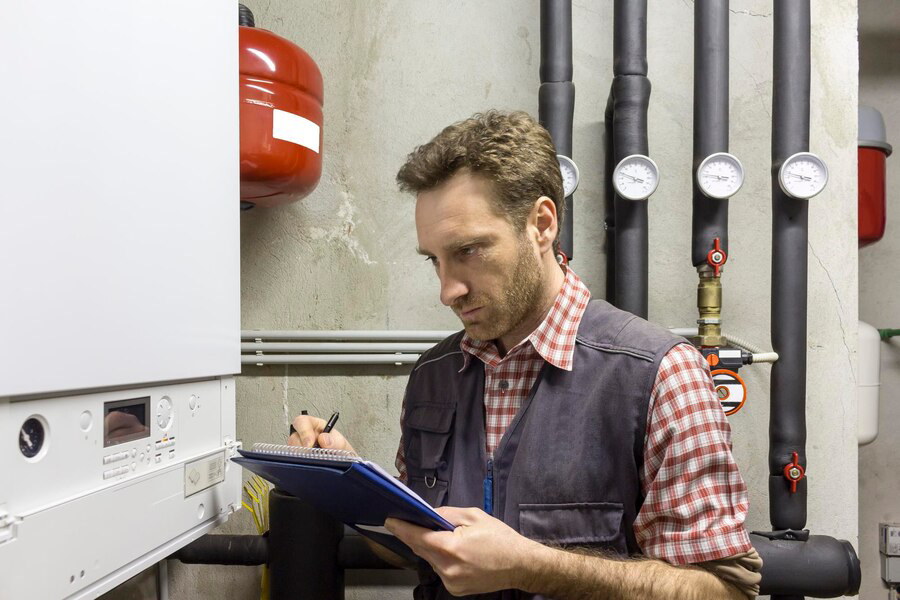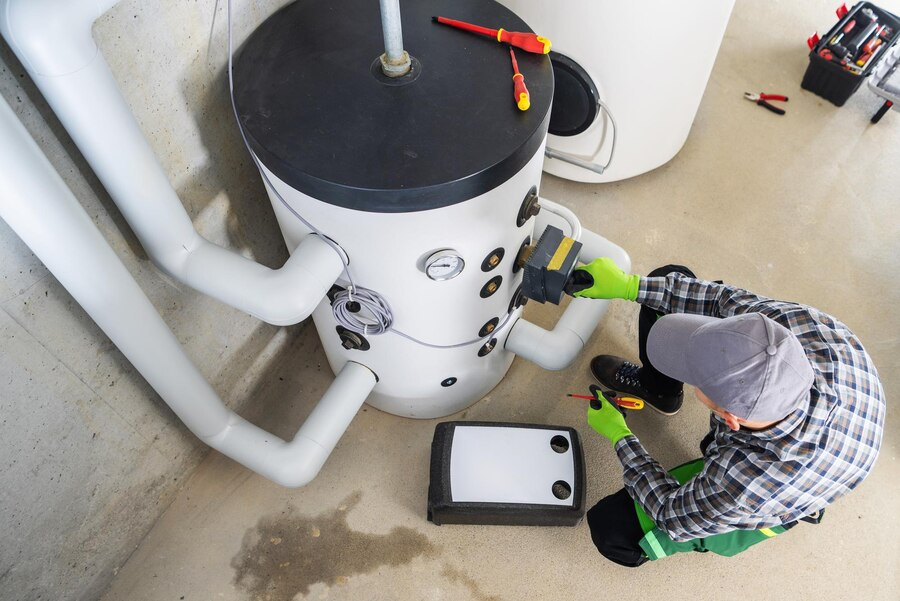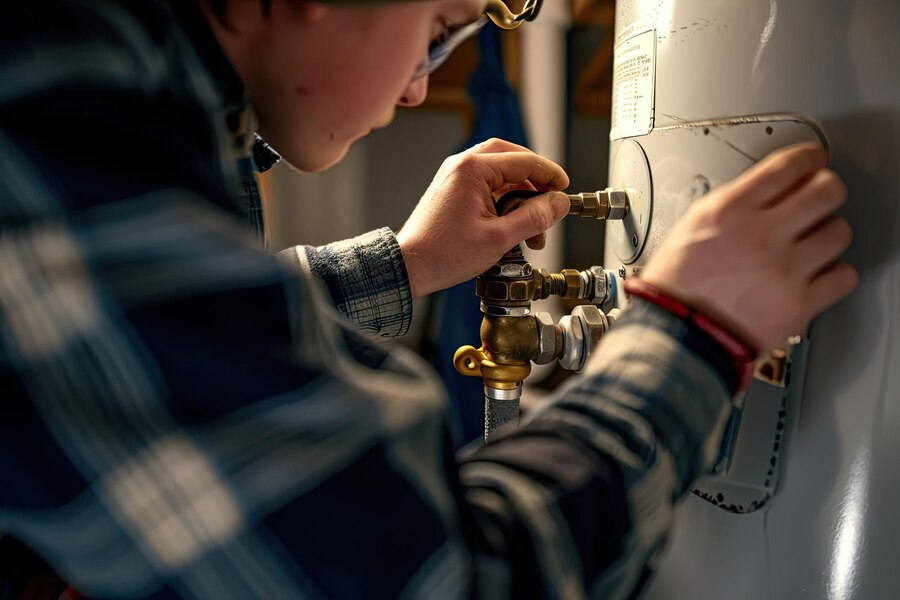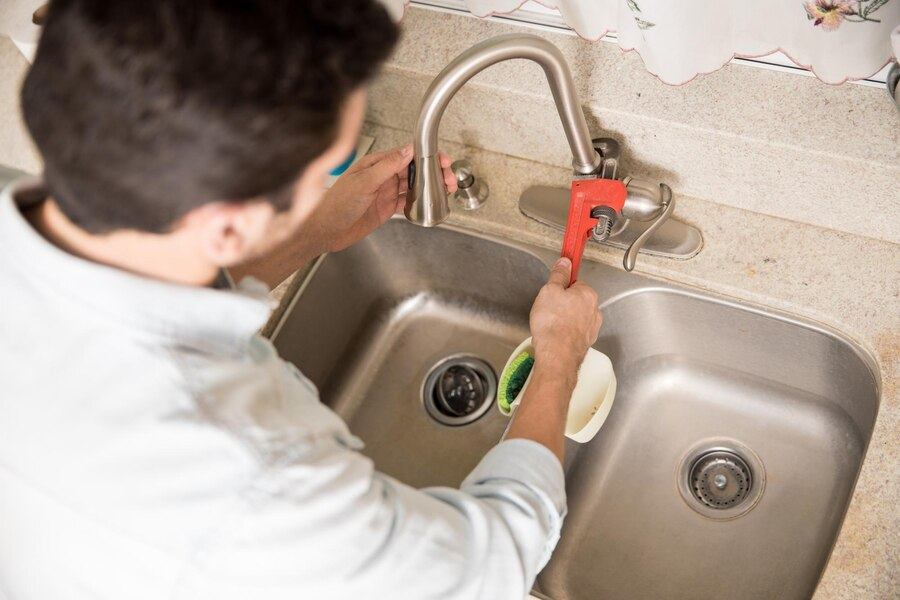Expert Tips for Efficient Boiler Installation and Maintenance
Enhance energy efficiency and reliability with proper boiler care
Boilers play a crucial role in keeping homes warm and comfortable, especially during the colder months. Proper installation and regular maintenance are key to ensuring their efficiency and longevity. Whether you're installing a new boiler or maintaining an existing one, following expert tips can help you optimize performance and minimize potential issues.
Understanding Boiler Types and Efficiency Ratings
types of boilers available and their efficiency ratings. Boilers come in three main types: combi boilers, system boilers, and conventional boilers, each tailored to different property sizes and hot water requirements.
Combi Boilers
Combi boilers are popular for their compact size and efficiency. They integrate water heating and central heating into a single unit, making them ideal for smaller homes or properties with limited space. They heat water directly from the mains, eliminating the need for a separate hot water cylinder.
System Boilers
System boilers work with a hot water cylinder, making them suitable for homes with multiple bathrooms or higher hot water demands. They store hot water in a cylinder, ensuring a ready supply for simultaneous use without compromising water pressure.
Conventional Boilers
Also known as regular or traditional boilers, conventional boilers require both a cold-water storage tank and a hot water cylinder. They offer high hot water output and are suitable for larger properties with substantial hot water demands. However, they occupy more space due to the additional tanks required.
Sizing the Boiler Correctly
Properly sizing a boiler is critical to ensuring efficient performance and avoiding unnecessary energy waste. A boiler that is too large will cycle on and off frequently, consuming excess energy and wearing out components prematurely. Conversely, an undersized boiler will struggle to meet heating demands, leading to discomfort and potential system malfunctions during peak usage periods. To determine the correct size, factors such as the property's square footage, insulation quality, number of occupants, and hot water usage patterns must be considered.
Consulting with a qualified heating engineer is essential during the sizing process. These professionals conduct thorough assessments to calculate the heating load accurately. By matching the boiler size precisely to the property's requirements, they optimize efficiency and ensure consistent comfort throughout the home or building. Investing in a correctly sized boiler not only enhances energy efficiency but also prolongs the equipment's lifespan, reducing maintenance costs over time. Proper sizing is a foundational step in achieving reliable heating performance and cost-effective energy consumption for homeowners.

Ensuring Efficient Boiler Maintenance
Regular maintenance is crucial for ensuring your boiler operates smoothly and efficiently over time. Here’s a detailed look at key maintenance practices:
Annual Servicing
It’s important to schedule annual servicing by a certified technician. During servicing, the technician will conduct a thorough inspection, clean components like the burner and heat exchanger, and tune the boiler for optimal efficiency. This proactive approach not only maximizes energy efficiency but also helps identify potential issues early, reducing the risk of costly repairs down the road.
Monitor Pressure and Temperature
Regularly monitoring boiler pressure and temperature
gauges is essential. Optimal pressure and temperature levels ensure efficient operation and prevent damage to the boiler’s internal components. High pressure can strain the system, while low pressure may result in inadequate heating. Keeping these levels within recommended ranges helps maintain peak performance and prolongs the lifespan of your boiler.
Bleed Radiators
Over time, air can accumulate inside radiators, which reduces their heating efficiency. Bleeding radiators annually is a simple yet effective maintenance task that allows trapped air to escape. This ensures that heat can circulate evenly throughout your home, optimizing comfort and reducing energy consumption. It’s a straightforward process that can be done using a radiator key, releasing air until water flows steadily from the valve.
Location and Ventilation Considerations
The placement of your boiler during installation plays a critical role in its functionality and safety. It should be situated in a well-ventilated area, ideally close to where hot water demand is highest, such as the kitchen or bathroom. Adequate ventilation is essential to dissipate combustion gasses safely and prevent potential health hazards like carbon monoxide buildup. Furthermore, easy access for future maintenance and repairs should be considered when selecting the installation location. A clear, accessible space around the boiler allows service technicians to perform routine inspections and repairs efficiently.
Consulting with a professional heating engineer ensures the boiler is installed in compliance with local building codes and manufacturer specifications. They can recommend the optimal location based on your property layout and heating requirements, ensuring both safety and operational efficiency. By prioritizing proper ventilation and accessibility during installation, homeowners safeguard their investment in the boiler system and contribute to a safe, comfortable living environment for years to come.
Professional Installation Services
Different Types of Professional Installation Services
When it comes to installing a boiler, opting for professional installation services ensures your heating system operates efficiently and safely. Here are different types of professional installation services available:
Full System Installation
This comprehensive service involves installing a new boiler along with all necessary components, such as pipework, radiators, and controls. Professional engineers assess your home's heating requirements and recommend a suitable boiler type and size. They ensure proper integration with existing systems and compliance with building codes and safety standards.
Replacement Installation
If you're replacing an old boiler, professional installation ensures seamless integration with your existing heating infrastructure. Engineers carefully remove the old unit, inspect the surrounding components for any issues, and install the new boiler with minimal disruption to your home. They also perform tests to verify proper functionality and address any unforeseen challenges during the installation process.
Upgrading Controls and Thermostats
Professional installers can upgrade your heating controls and thermostats to modern, energy-efficient models. This service allows you to optimize heating schedules, monitor energy usage, and improve overall system efficiency. Upgraded controls offer greater flexibility and convenience, enabling you to adjust temperatures remotely and adapt heating settings based on your lifestyle.
Boiler Conversion Services
In cases where you switch from one fuel type to another (e.g., from oil to gas), professional installation services include converting your boiler system to accommodate the new fuel source. Engineers handle the entire conversion process, ensuring proper adjustments to pipework, ventilation, and safety measures to comply with regulations and manufacturer specifications.
System Flushing and Cleaning
Professional installers may offer system flushing and cleaning services as part of installation or maintenance packages. This involves removing debris, sludge, and contaminants from the heating system to improve efficiency and prevent potential issues like corrosion or blockages. System flushing enhances heat distribution and prolongs the lifespan of your boiler components.
Regular Maintenance Checks
Regular maintenance is essential for ensuring the longevity and efficiency of your boiler system. By scheduling annual servicing with a qualified engineer, you can proactively identify and address any potential issues before they escalate into costly repairs. During a maintenance visit, the engineer will inspect the boiler, clean key components, and perform diagnostic tests to ensure everything is functioning correctly. This proactive approach not only improves the boiler's performance but also enhances safety by identifying and rectifying any safety hazards.
Routine maintenance checks include examining for signs of wear and tear, checking for leaks or corrosion, and verifying the efficiency of combustion processes. Any adjustments or repairs needed can be addressed promptly, preventing minor issues from developing into major problems that could disrupt heating or hot water supply. Additionally, regular servicing helps maintain the manufacturer's warranty validity, providing coverage in case of unexpected breakdowns. By investing in regular maintenance, homeowners can extend the lifespan of their boiler, reduce energy costs, and ensure reliable heating and hot water throughout the year.
Benefits of Professional Installation:
- Expertise and Safety: Certified engineers possess the necessary expertise to handle complex installations safely and efficiently, ensuring compliance with regulatory requirements.
- Warranty Protection: Professional installation often includes warranty coverage for both the boiler and installation work. This protects your investment and provides peace of mind against unexpected repairs.
- Optimized Performance: By choosing professional installation, homeowners can maximize the efficiency and longevity of their boiler system. Engineers provide valuable advice on maintenance practices and system optimization, ensuring consistent performance throughout its service life.
Conclusion
Ensuring smooth boiler installation and meticulous maintenance is crucial for optimal performance and longevity. Professional services like Plumbing & Heating, based in Northampton, UK, offer expertise in handling these tasks efficiently. Proper installation not only enhances energy efficiency but also reduces the risk of breakdowns. Regular maintenance by qualified gas engineers ensures safety and extends the lifespan of your boiler. Trusting specialists in Northampton ensures that your heating system operates reliably, keeping your home comfortable throughout the year.



